Drum magazines are a bit of a pain in the ass. Drums, in general, suck. They are complicated, often bulky, and, worst of all, unreliable. Drums have been experimented with throughout the history of cartridge warfare. When militaries use a drum, they typically abandon it for an extended magazine. Magpul, the famed magazine company, decided to tackle the drum magazine with the creation of the D-60.
The D-60 is a drum designed for rifles that use AR 15 pattern magazines. As the name implies, it accommodates 60 5.56 rounds. The D-60 drum is made from the same polymer composite body that Magpul M3 magazines are made. For a drum, it is relatively lightweight and compact.
Why?
Who doesn’t want an option to shoot more while reloading less? That’s the point of the Magpul D-60 drum. From a professional military perspective, drums are traditionally used for suppressive fire since drums can give an average rifle suppressive capabilities. A drum-equipped gun allows you to break contact with fire, or charge through a near ambush. Drums limit your need to reload and will enable you to solve problems with less energy put to reloading your weapon.
As we mentioned above, drums kind of suck, though. They sound great in theory but often fail. Yet, does the D-60 live a life above most drum magazines?
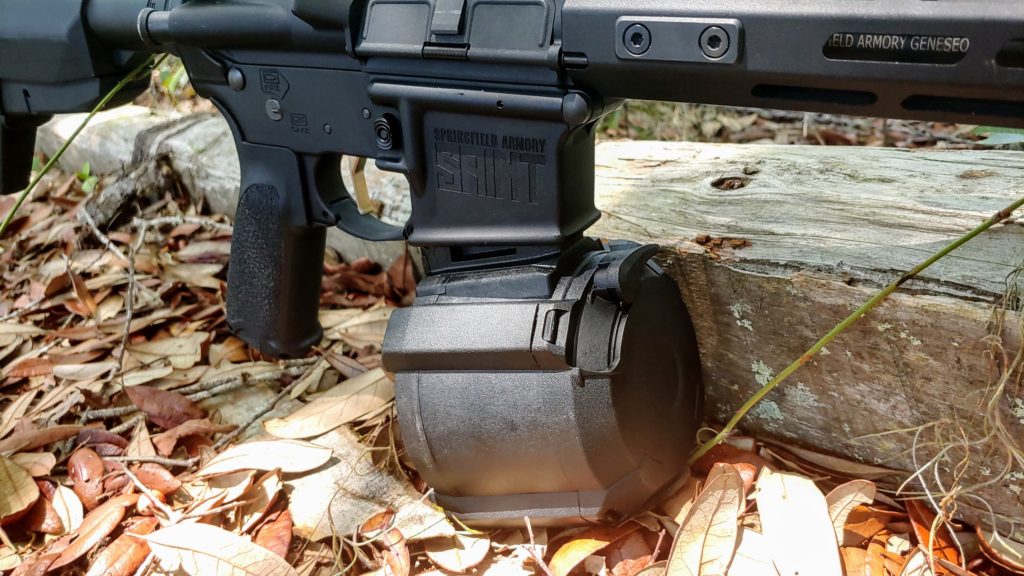
The Magpul D-60 Redefines Drum Magazines
What’s great about the D-60 is that it simplified the drum design. The Magpul D-60 can quickly be taken apart and stripped for maintenance and cleaning. Disassembly just requires a flat head screwdriver or some pry device, and that’s it.
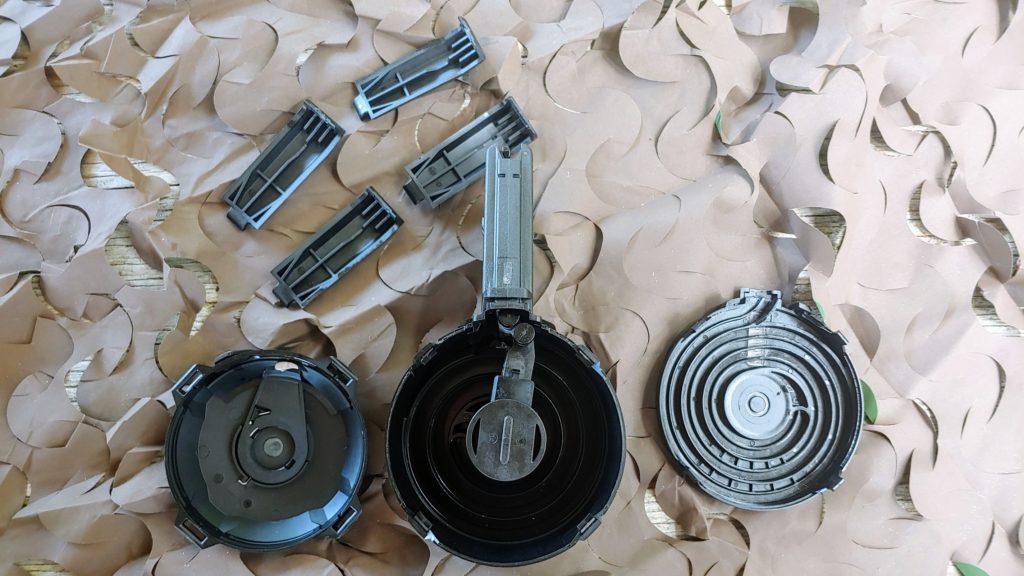
The Magpul D-60 drum can also be left loaded by adjusting a tensioning device. An issue with older drums was that you couldn’t leave them loaded. This often made them inconvenient, but Magpul fixed that with the D-60 drum.
The D-60 comes with a built-in loading lever that allows you to crank down the rounds while loading. This, and the built-in compatibility with 5.56 magazine loaders, make it easier to load compared to most other drums.
Loading it is relatively simple, although loading it to capacity is a bit of a hand workout: As you’d imagine loading the drum takes some time, but once loaded, you can leave it so until you are ready.
Performance
Finally, we get to testing the D-60, after all, none of the above features matters if the thing doesn’t work.
I tested the Magpul D-60 with 55, and 62-grain brass cased ammunition and 55-grain steel cased ammo.
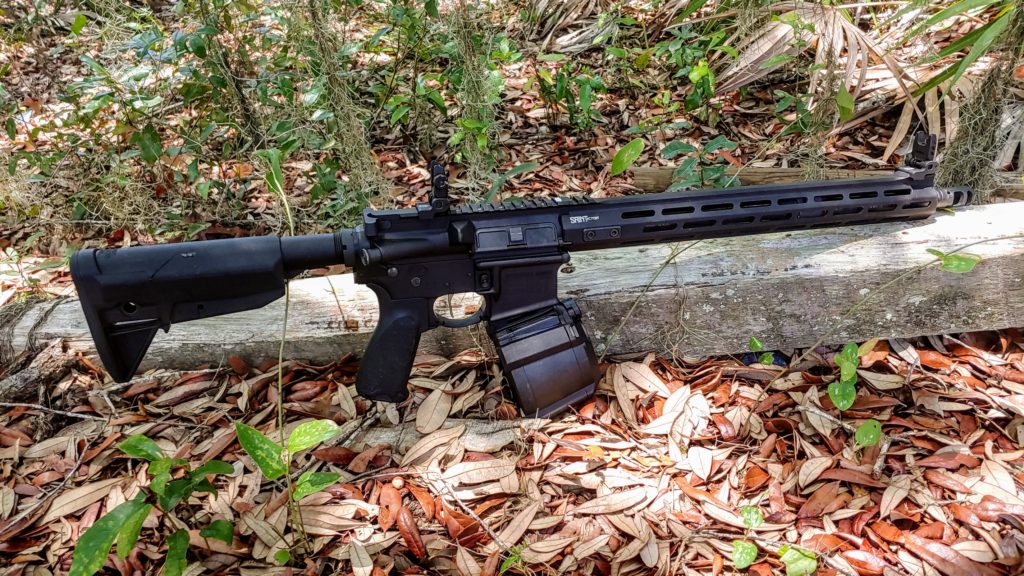
At the range, the D-60 performed flawlessly. It cycled through the variety of loads I put through it without complaint in both a standard AR 15 and a BRN 180. Thus, moving to awkward shooting positions that stressed the magazine was my next task.
Changing Positions
One of the benefits of a drum over an extended capacity magazine is the ability to assume the prone position since drums are wider, but shorter thus allowing for a good prone position. I went prone and rested the drum against the ground, almost as if it was a monopod. The additional pressure on the drum caused zero issues and allowed me to blast away.
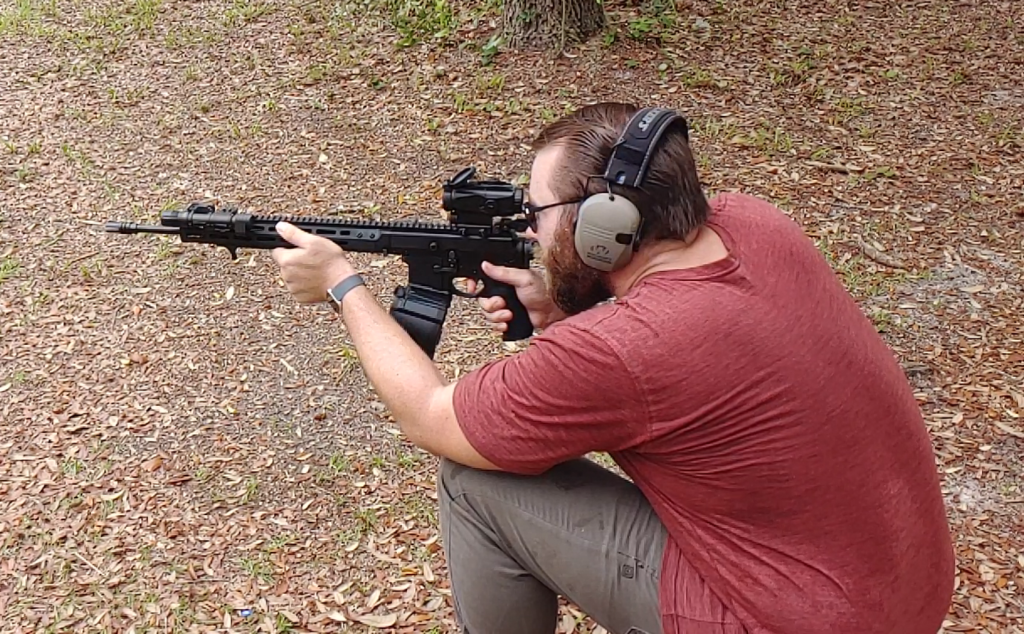
Next, I took a barrier brace shooting position where the drum was pushed against a tree, causing side pressure, and I resumed blasting away. Again I ran into no issues.
Finally, I loaded the drum and dropped it. I dropped it over and over. When fully loaded, it would occasionally drop a single round. Other than that, I could grab it, throw it in my gun, and started blasting away.
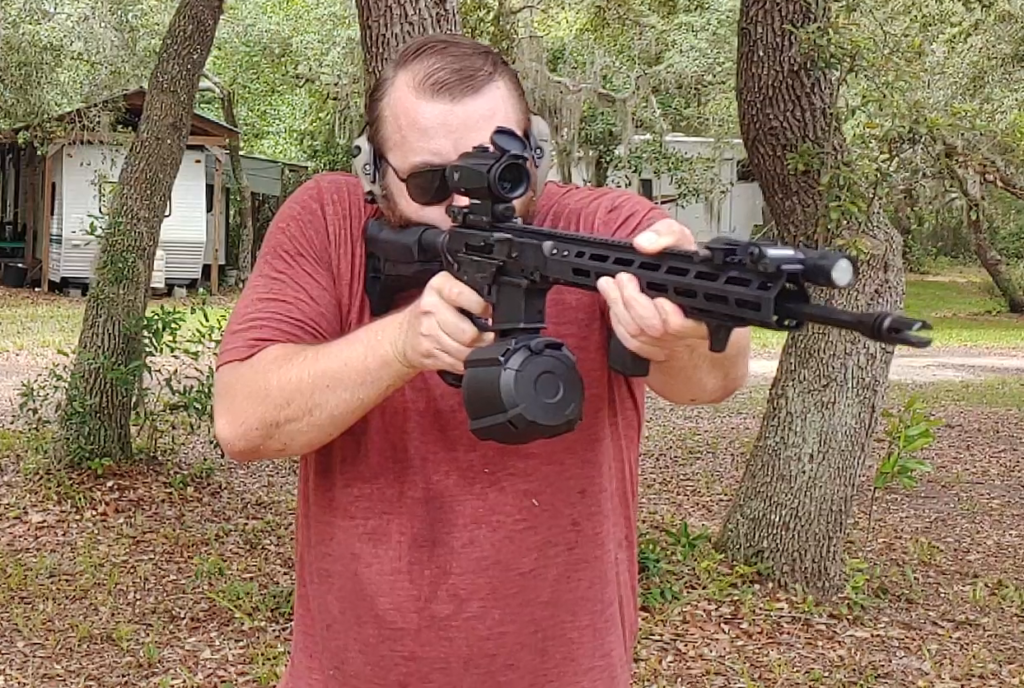
After a few hundred rounds, multiple positions, and some good ole drop tests I’d say that the Magpul D-60 drum is good to go.
Magpul has broken the drum stereotype with the D-60 drum and knocked it out of the park. The Magpul D-60 drum is the only drum I’d recommend for serious use. The Magpul D-60 swings hard and fast out of the gate.

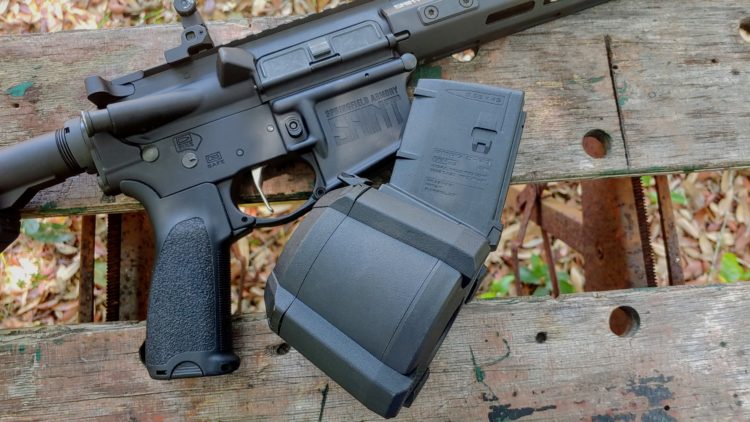








COMMENTS